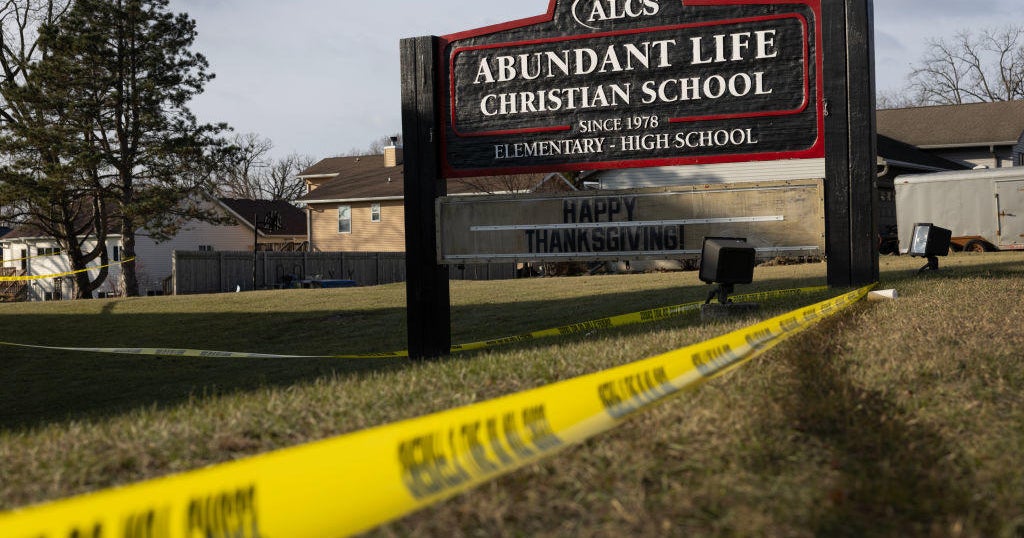CBS News
Last known slave ship to arrive in the U.S. is a decayed “crime scene” that should stay underwater, experts say

The last known U.S. slave ship is too “broken” and decayed to be extracted from the murky waters of the Alabama Gulf Coast without being dismembered, a task force of archaeologists, engineers and historians announced following a yearslong investigation.
The task force headed by the Alabama Historical Commission said Thursday that the Clotilda, the last ship known to transport enslaved Africans to the United States, had been broken in half by a large vessel and severely eroded by bacteria. The 500-page report says that the “responsible” way to memorialize the ship is to protect it under the water where it was discovered in 2019.
“There is no other site in the world that presents such physical evidence as the Clotilda,” said James Delgado, a lead marine archeologist on the investigation who said the priority was preserving that physical evidence. “The Clotilda is the scene of the crime, so everything we did was in that crime scene investigation manner.”
The wooden schooner at the heart of the investigation was commissioned in 1860 by Timothy Meaher, one year before the Confederacy was created and decades after the importation of slaves was made punishable by death in 1808. Captained by William Foster, the ship traveled to West Africa and illegally smuggled 110 Africans back to Alabama. Foster then attempted to burn and sink the ship to hide the crime.
SEARCH, Inc./Alabama Historical Commission
After the Civil War freed the survivors of the Clotilda, historical records show 32 of them bought land from Meaher and established what is now Africatown, formally known as Plateau, about 3 miles north of Mobile.
As “60 Minutes” reported last year, Africatown is now the only surviving community in America founded by Africans. Some of their descendants still call it home.
The ship’s remains stayed, unidentified in the brackish Mobile River until 2019. On Thursday, the task force presented photos of some charred remains of the hull that were extracted throughout the investigation – evidence that supported the story documented by historians and community members for decades.
Before the state-funded $1 million investigation, it was unclear how well the ship had weathered the over 160 years under water. Some had hoped it was intact enough to be fully excavated and turned into a museum on land.
“Museums have power, and that ship loses its power if it is sitting in the water,” said Ben Raines, a former local reporter who wrote a book about the Clotilda.
Raines said that he is still optimistic that the ship could be excavated and turned into a museum because the task force said that option is still scientifically and technically possible. Raines said that a museum would be a significant resource to all descendants of the enslaved in the U.S. and could bring much needed revenue to the Africatown community. Many residents in attendance at Thursday’s meeting expressed a similar sentiment.
Delgado didn’t rule out that option, but said that process would require the ship to be disassembled “piece by piece, nail by nail,” and could compromise some of the remaining physical clues about the experiences of the enslaved people aboard.
That key historical evidence includes the lower hull where the enslaved Africans were held in captivity. Deep water dives revealed the confined chambers where 110 people were held remain mostly intact.
“It’s very chilling”
The president of the Clotilda Descendants Association, Jeremy Ellis, became visibly emotional when Delgado shared details of the compartment where his ancestors were kept.
“Since we’ve been able to learn more about what they really experienced and how small that cargo hold was and how on top of each other they were, it’s very chilling,” said Ellis, who is in his early 40s and a sixth-generation descendant of Clotilda survivors Pollee and Rose Allen. “And it makes me want to continue the effort of reconciliation and healing for the descendants.”
Instead of an excavation, the report recommended a plan that would preserve the structure underneath the water by installing large pillars around the ship to protect it from other ships and vessels. The ship is submerged in a designated Wildlife Management Area and the town is listed on the National Register of Historic Places, which means the process will require the U.S. Army Corps of Engineers to get federal permitting to install the protections. Representatives from the Army Corps of Engineers who have been integral to the investigation said the process could be resolved in a matter of months as long as there aren’t serious conflicts between the environmental protections and the needs of the ship.
The ship’s discovery in 2019 reignited a longstanding debate over how to address the harrowing legacy of the Clotilda, especially for the direct descendants of the survivors. The Meaher family still has millions of dollars in real estate holdings in the area, as well as parks and roads that bear the family name.
Last summer, descendants of enslaved Africans and descendants of the slave owner who bankrolled their voyage to America sat down together in a historic meeting to talk about reconciliation, after years of effort to set up a meeting.
60 Minutes
Zora Neale Hurston’s bestselling book “Barracoon” documents the life of Cudjo Lewis, the Clotilda’s last surviving enslaved African. Released in 2018, “Barracoon” includes stories about Lewis’ upbringing in Africa, experiences aboard the slave ship and during his enslavement, and his part in finding Africatown. Lewis died in 1935 at the age of 94.
As a result, Africatown and the Clotilda are frequently cited in the national conversation about reparations.
Ultimately the task force said that the underwater preservation plan would only protect the structure for an estimated 100 years before it fully succumbs to erosion. They added the timeline could be shortened by climate change, which will likely affect the levels, temperatures and salinity of the water around the ship.
But many descendants said they are OK with letting the ship stay underwater.
Veda Robbins, 55, is also a sixth-generation descendant of Pollee and Rose Allen. Robbins grew up in nearby Mobile but clearly remembers going to her great aunt’s house in Africatown in her childhood. Robbins married in the local Africatown church and later baptized her children there.
Robbins said that the ship doesn’t matter as much as the need to revitalize the Africatown community, which has been ravaged by environmental contamination and disinvestment since its inception.
“I don’t want to see a ship taking up space in the community that could be used for housing and things for the community itself,” Robbins said. The population of the unincorporated town has dwindled significantly to just under 2,000 people.
Robbins echoed the official position of the Clotilda Descendants Association: Ultimately, the ship is less important than the stories of the people who survived it, along with the descendants who are already struggling to keep the Africatown community intact.
CBS News
12/18: The Daily Report – CBS News

Watch CBS News
Be the first to know
Get browser notifications for breaking news, live events, and exclusive reporting.
CBS News
Teacher, student killed in Wisconsin school shooting identified

A teacher and student killed in a shooting earlier this week at a school in Madison, Wisconsin, were identified Wednesday by authorities.
The Dane County Medical Examiner’s Office said in a news release provided to CBS News that 42-year-old Erin West and 14-year-old Rubi Vergara were fatally shot Monday morning at Abundant Life Christian School.
Preliminary examinations determined the two died of “homicidal firearm related trauma.” Both were pronounced dead at the scene, the medical examiner said.
An online obituary on a local funeral site stated Vergara was a freshman who leaves behind her parents, one brother, and a large extended family. It described her as “an avid reader” who “loved art, singing and playing keyboard in the family worship band.”
West’s exact position with the school was unclear.
The medical examiner also confirmed that a preliminary autopsy found that the suspected shooter, 15-year-old Natalie Rupnow — a student at the same school — was pronounced dead at a local hospital Monday of “firearm related trauma.” Madison Chief of Police Shon F. Barnes had previously told reporters that Rupnow was pronounced dead while being transported to a hospital.
Police had also previously stated that she was believed to have died from a self-inflicted gunshot wound.
The shooting at the private Christian K-12 school was reported just before 11 a.m. Monday. In addition to the two people killed and the shooter, six others were wounded.
Police said the shooting occurred in a classroom where a study hall was taking place involving students from several grades.
A handgun was recovered after the shooting, Barnes said, but it was unclear where the gun came from or how many shots were fired. A law enforcement source said the weapon used in the shooting appears to have been a 9 mm pistol.
and
contributed to this report.
CBS News
Last-minute government funding bill in limbo after opposition from Trump, others

Watch CBS News
Be the first to know
Get browser notifications for breaking news, live events, and exclusive reporting.











